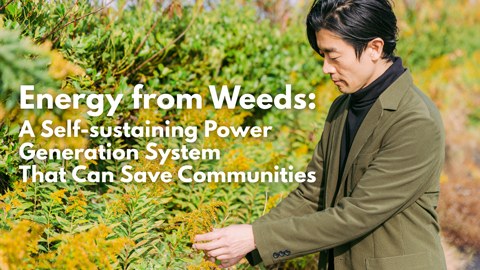Even after its independence in 2011, long-lasting ethnic conflicts still persist in South Sudan. National Unity Day, a sports festival for “Peace and Social Cohesion” that began in 2016 with the support of the Japan International Cooperation Agency, has been broadening the mindset of the country’s young generations toward bridging the differences in ethnic backgrounds.
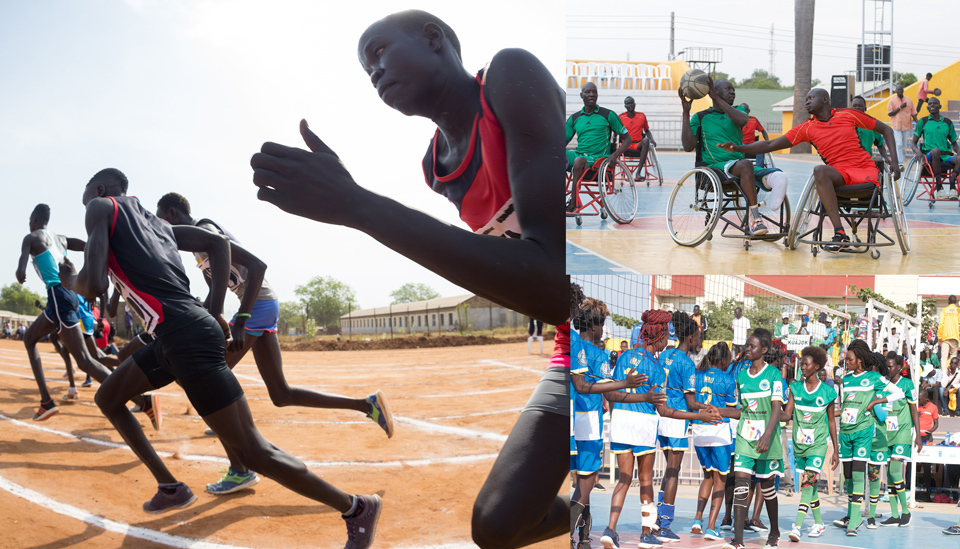
NUD draws athletes from across South Sudan to compete in a variety of events including athletics, volleyball, and wheelchair basketball. (Photo taken at NUD 2020)
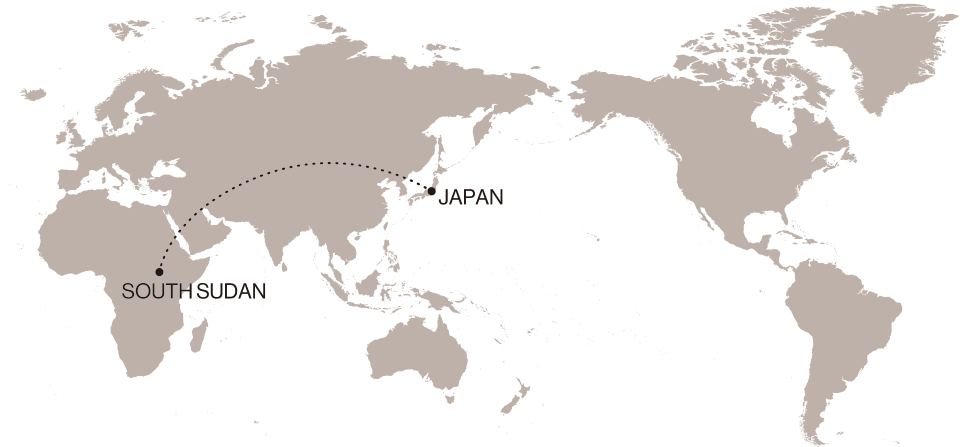
While the Olympic and Paralympic Games provide a stage upon which the world’s top athletes can compete at the highest level, they are also an opportunity to bring cohesion and hope to countries through sports. South Sudan provides a good example. After conflict that lasted more than half a century, the country won independence from Sudan in 2011. But there have been repeated domestic ethnic conflicts since then, and even now there are over 3.8 million refugees inside and outside the country. Despite such circumstances, four athletes from South Sudan will be heading to the Olympic and Paralympic Games Tokyo 2020. The athletes found it difficult to train in their own country, but they discovered a way around that impasse thanks to support from the Japanese city of Maebashi, Gunma Prefecture, which organized a long-term pre-Olympic camp for them beginning in November 2019. Guem Abraham Majok Matet, who will compete in the men’s 1,500 meters, says, “For South Sudan, which has long suffered from a civil war, the opportunity to appear in the festival of peace [represented by the Olympics] has great significance. I want to give the kind of performance [at the Games] that will encourage people in my home country.”
The future Olympians and other athletes from South Sudan had lacked the opportunity to train and compete domestically amid their country’s instability, but eventually they got the chance through the annual National Unity Day (NUD) sports festival, launched in the capital city, Juba, in 2016 with the assistance of the Japan International Cooperation Agency (JICA). Athletes aged 19 or younger gather from around the country to compete in athletics, football, volleyball, and other sports, with the tournament providing a springboard for outstanding talents to advance to international competitions, and then on to the Olympic and Paralympic Games. As the only official sports tournament in the country, NUD gives the young South Sudanese athletes the chance to win glory in their chosen fields, and attracts more than 60,000 spectators.
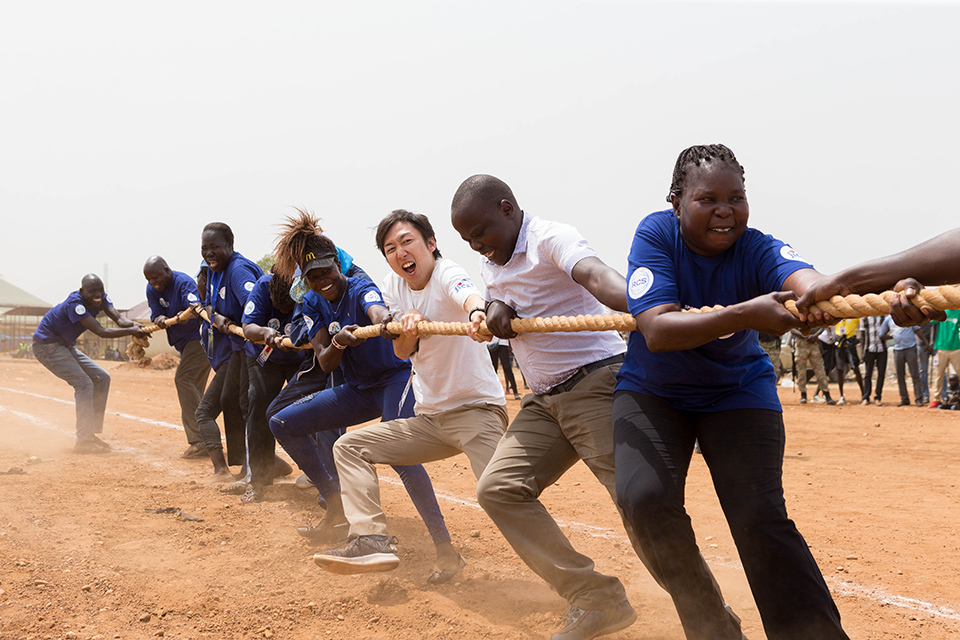
During NUD, a tug of war event takes place where athletes from different states form teams. The tournament staff, including KANAMORI Daisuke from the JICA South Sudan Office, have a team, too.
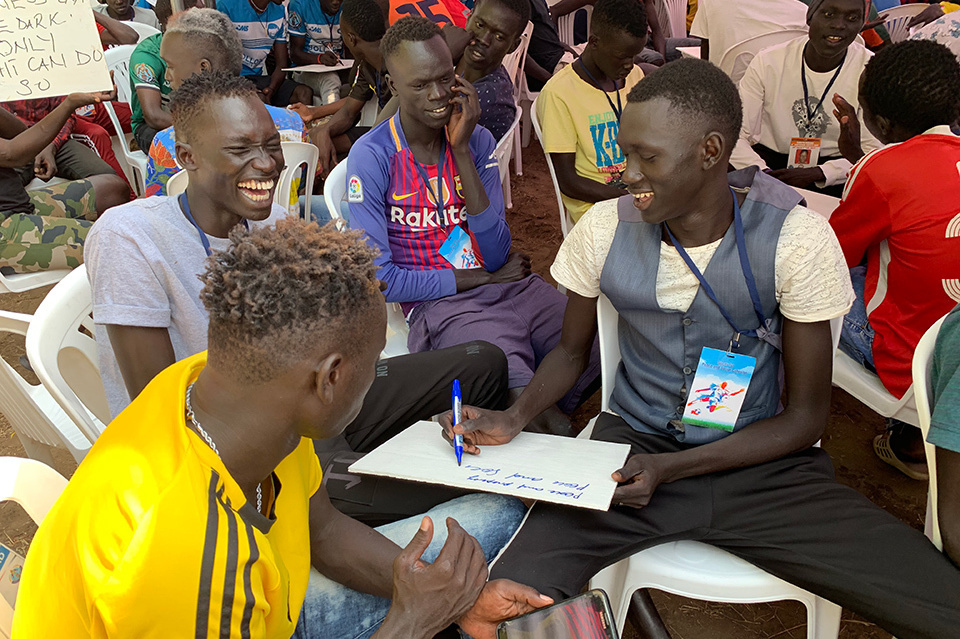
There is also a workshop to learn about peace, at which the athletes express their own pro-peace messages.
Another major goal of NUD is to promote peace and social cohesion through sports. JICA fully supported the South Sudanese government at the time of the tournament’s founding, with the aim of providing an opportunity for young people—who will lead the country in the future—to get to know each other and overcome the barriers of ethnicity. The wide-ranging support included funding and arranging preliminary events across the country and constructing competition grounds. Since then, JICA has continued to support and work together with the government and international organizations to develop NUD further by formulating various creative projects, one example of which is the peacebuilding workshop during the tournament, where athletes from different ethnic groups can interact with each other by learning together. In addition, the NUD participants are also able to deepen their exchange during the tournament just by living together. As KANAMORI Daisuke of the JICA South Sudan Office says, “We assign dorm rooms so that athletes of different ethnic backgrounds share rooms together. By eating and sleeping in the same place, they get to know each other, becoming friends and staying in touch through social media after the tournament.” In a 2019 questionnaire, over 95% of athletes responded that they had become friends with a participant from another part of the country.
After the tournament, the athletes serve as peace ambassadors throughout the country by sharing their experiences at NUD with their local communities. The way they do so varies, from organizing sports events for children of different ethnic backgrounds to talking about their NUD experiences on the radio. Still, the athletes have something in common. “Many of them try to form deeper friendships in communities and teams, with an awareness that they are serving as role models,” Kanamori says.
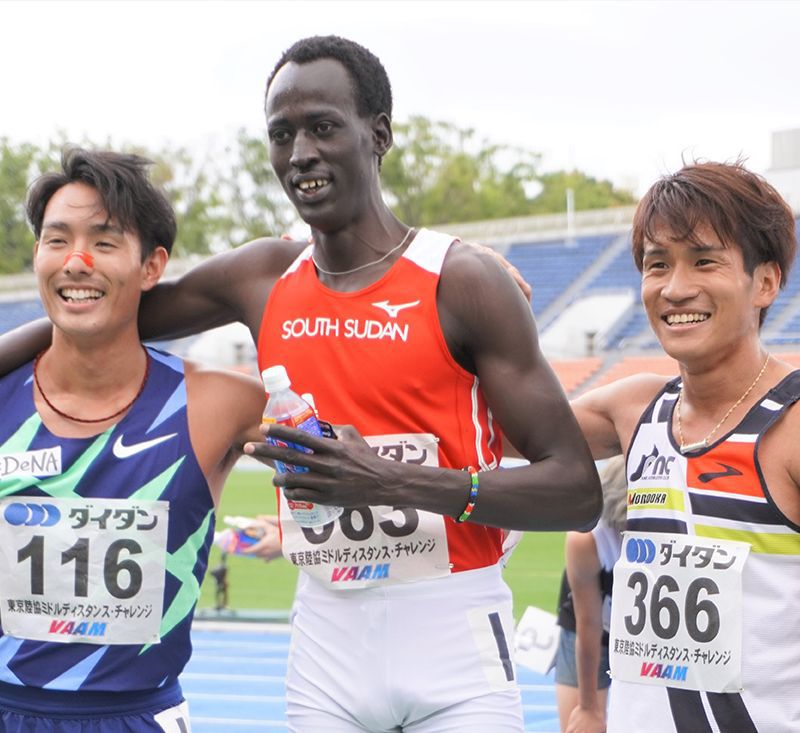
Four South Sudanese athletes representing their country have been training at a long-term pre-tournament camp ahead of the Olympic and Paralympic Games Tokyo 2020. Guem Abraham (middle), who will compete in the men’s 1,500 meters, joined a middle-distance race in Tokyo in April, in which he placed second, recording a personal best. https://www.jica.go.jp/english/news/field/2021/20210430_01.html
In addition to being an Olympian, Guem Abraham Majok Matet is an ambitious yet kindhearted peace ambassador. He says, “I think that NUD contributes to peace in South Sudan in a way that is hard to describe in words. By letting us directly interact with others in the country with different backgrounds, the tournament has enabled us athletes to let go of the various preconceptions that we might have had and has helped us learn to understand each other.” At the Olympics and Paralympics as well, his aim is to turn the Games into an opportunity for greater cohesion that bridges ethnic divides. “I want to put smiles on the faces of many people in South Sudan. I want to do that not just through my running but by actively engaging in any activity that leads to peace. My hope is that by doing so I will bring smiles to my fellow South Sudanese.”
Photos courtesy of JICA




























